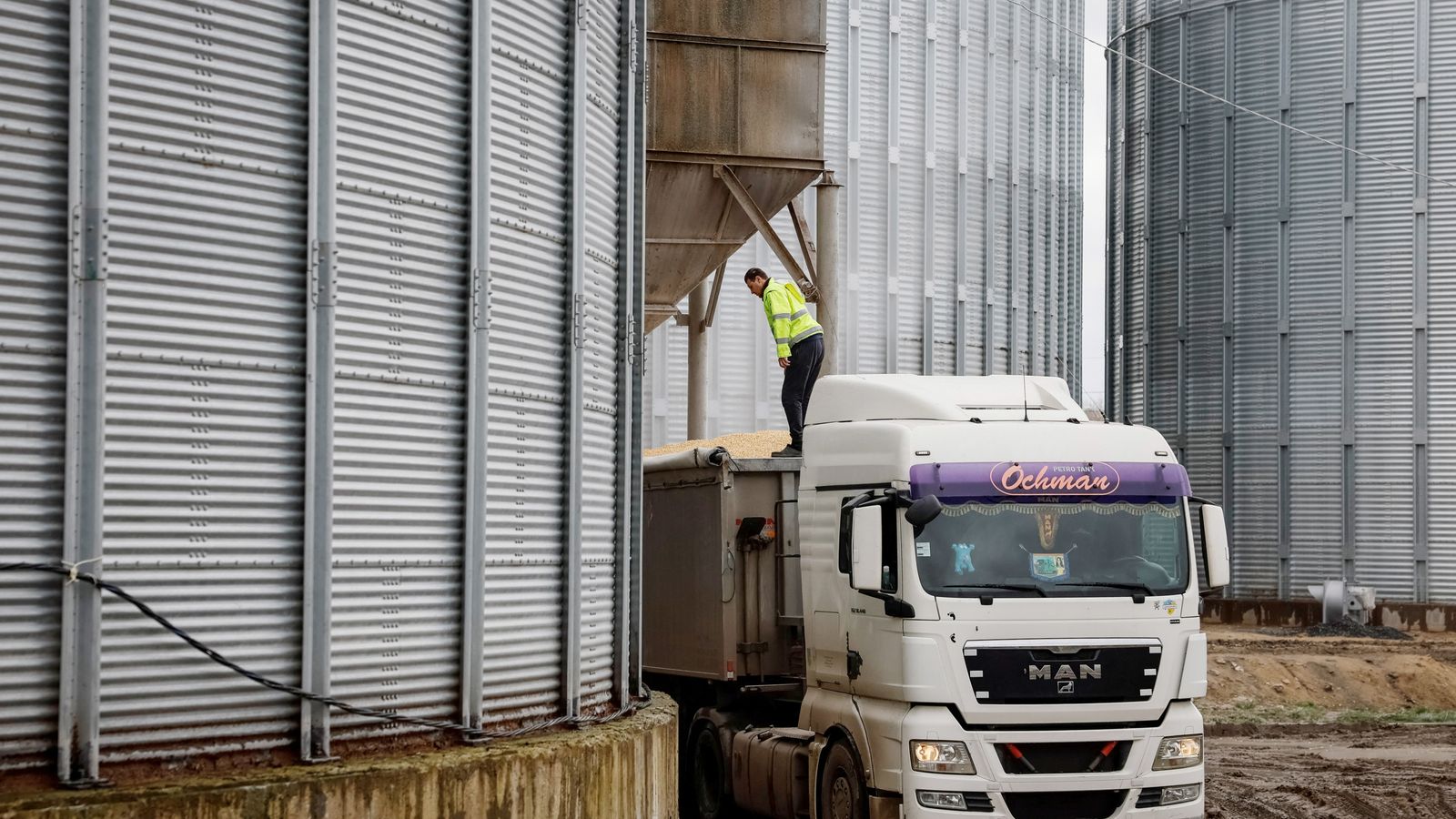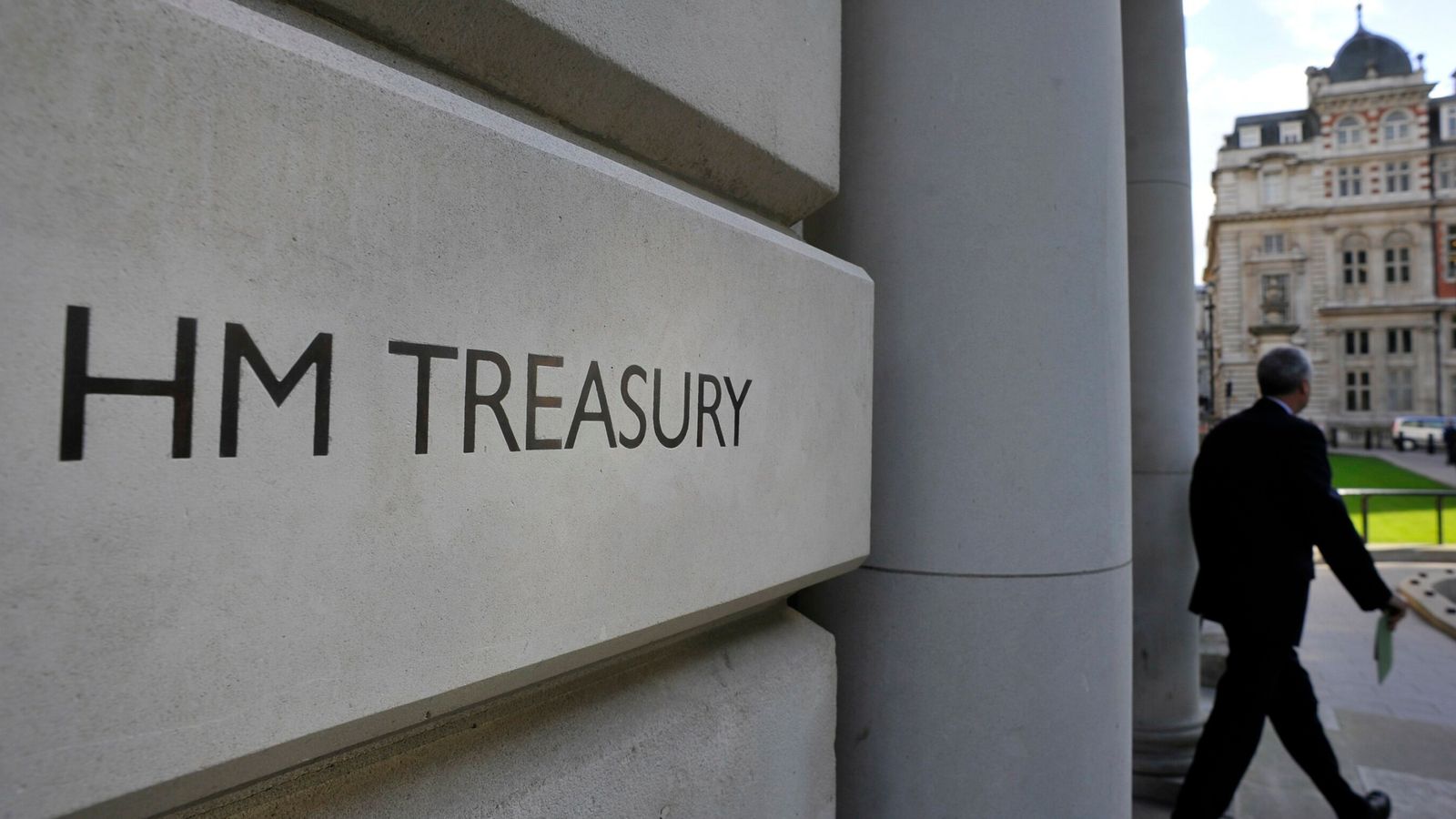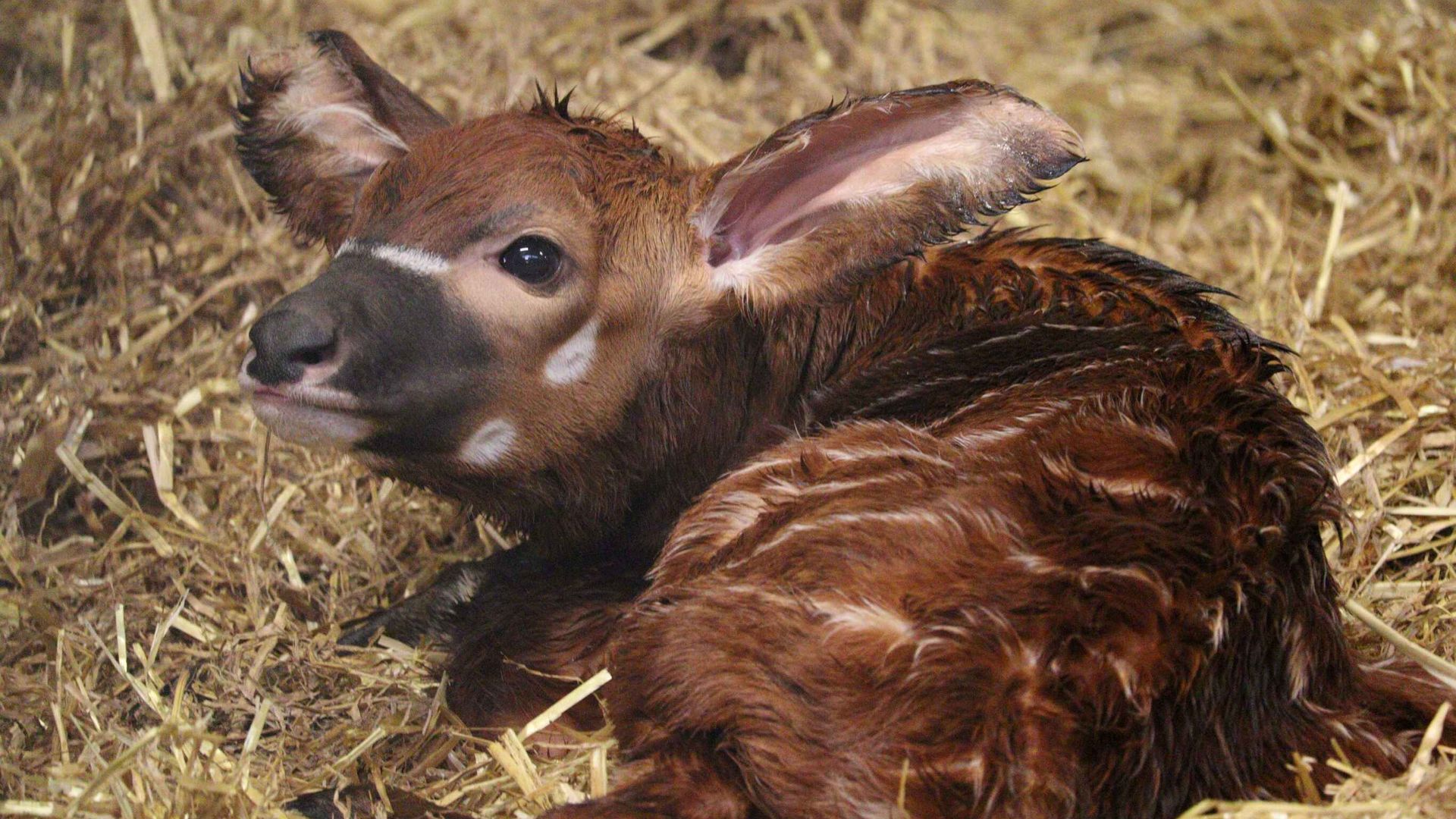Tariff-free trade with Ukraine has been extended until 2029, the government has announced, marking a deeper commitment to the country’s economy as its war with Russia continues.
Trade minister Greg Hands, who was due to sign the reciprocal extension at a virtual ceremony, said the support would continue for “as long as needed”.
However the UK’s National Farmers’ Union (NFU), while welcoming the renewed show of “solidarity”, has expressed concern about the impact on domestic production amid industry anger across Europe about hits to profit margins and shifting regulations.
The UK-Ukraine deal had been due to expire at the end of March and covers the vast majority of goods but eggs and poultry exemptions last only for an additional two years rather than five.
Money latest: Cheap tips for keeping house warm
The extension boosts opportunities for Ukrainian business in key sectors such as oils, grains and other agri-foods – products that have surged in price since Russia‘s invasion in February 2022.
British firms also benefit from the removal of tariffs for exports to Ukraine, the Department for Business & Trade confirmed.
Two killed in Kyiv after Russia launches ferocious missile and drone attacks across Ukraine
Tetiana Martynova: Ukrainian mum who fled war dies after being struck by car in Swansea
At least 28 killed in shelling at bakery in Russian-occupied city in eastern Ukraine, Moscow-installed officials say
The UK has backed Ukraine’s war effort by providing weapons and aid, as well as the favourable trade terms which include a digital trade deal that aims to boost e-commerce between the two countries.
The government says it has provided over £10bn in military, humanitarian and economic support to Ukraine to date.
“This agreement provides much needed long-term economic support to Ukraine, its businesses and people – critical to its recovery from Putin’s illegal invasion.” Mr Hands said.
There has been backing for Ukraine’s exports across Europe, with the European Union also waiving tariffs.
However the imports, while welcome for hard-pressed consumers as they tend to be cheaper, have not been greeted with satisfaction by farmers.
The issue has formed part of a recent protest movement across many EU nations that has resulted in ugly clashes and disruption.
Please use Chrome browser for a more accessible video player
They argue that high costs and tighter regulations have strangled earnings.
In the UK, farmers say a shift from support payments since Brexit towards environment-linked awards has damaged not only profitability but food security too.
Please use Chrome browser for a more accessible video player
The NFU’s concerns over the Ukraine deal relate to high volumes of imports from chicken eggs to meat.
It said that since the UK granted its temporary tariff suspensions in May 2022, imports of Ukrainian poultry meat to the UK, direct and transhipped via the EU, had increased by 90% over the first 11 months of 2023 compared to the same period in 2022.
The levels, it said, exceeded the quotas available under the UK-Ukraine free trade agreement.
The outgoing NFU president, Minette Batters, told Sky News, that it wanted effective monitoring of the arrangement.
“UK farmers continue to stand in solidarity with our farming colleagues in Ukraine as the devastating and illegal invasion of their country continues.
Be the first to get Breaking News
Install the Sky News app for free
“We want to support Ukrainian farmers and facilitating trade in the UK market is a practical way for our government to do this.
“At the same time, the UK government must also consider how to avoid detrimental impacts on domestic production.
“Even amidst the war, Ukraine remains one of the world’s largest chicken meat exporters so it’s reassuring that our government has found a way to support Ukraine by extending tariff easements while also considering vulnerable sectors here in Britain, such as our poultry producers.”
She added: “International trade is a dynamic environment and is influenced by many factors, not least tariff treatment in other markets such as the EU.
“We therefore urge the government to continue to monitor the effects of this decision closely and, if it does become necessary, to make use of available bilateral safeguards.”











